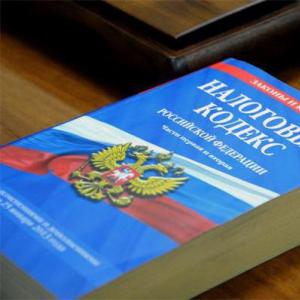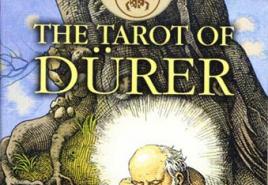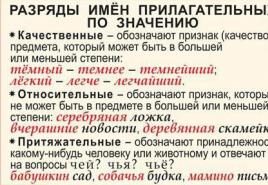For which they gave Lazarenko the title of the Soviet Union. “The grandson is responsible for the grandfather!”: crucified by war (General I.S. Lazarenko). Failure in biography
L Azarenko Ivan Sidorovich - commander of the 369th Karachevskaya rifle division 49th Army of the 2nd Belorussian Front, Major General.
Born on September 26 (October 8), 1895 in the village of Staro-Mikhailovskaya, now Kurganinsky district, Krasnodar region, into a peasant family. Russian. He graduated from the 7th grade of the gymnasium. He worked as a miner in a mine.
In 1915-17 he served in the Russian Imperial Army. Member of the First World War. The sergeant, a full Knight of St. George, was also awarded 4 medals. His name is in the St. George Hall of the Kremlin. After the revolution, he voluntarily gave all his awards to help the starving people of the Volga region.
Since October 1917 in the Red Guard. Since 1918 in the Red Army. Participant Civil War, commanded a platoon and squadron. For battles with the White Guards near the village of Stepnoy, he was awarded the Order of the Red Banner of Battle in 1920. The order was presented personally by Vladimir Ilyich Lenin. Member of the RCP(b) since 1921.
He graduated from the Comintern rifle-tactical advanced training courses for the command staff of the Red Army "Vystrel" in 1925, Military Academy Red Army named after M.V. Frunze. Since 1925 he commanded a company and battalion. Since 1935 - commander of the reconnaissance battalion in the 49th Infantry Division. In 1936, he participated in the national revolutionary war in Spain, and was a senior military adviser to the commander of the 5th Corps of the Republican Army, Colonel Juan Modesto.
Since March 1938 - assistant commander of the 38th Infantry Division. Since October 1939 - commander of the Karelian fortified region, in this position he entered the Soviet-Finnish War of 1939-1940. On January 31, 1940, on the basis of this UR, the 42nd Infantry Division was formed, which I. S. Lazarenko successfully commanded on the Karelian Isthmus and on the coast of the Gulf of Finland. By resolution of the Council of People's Commissars of the USSR of June 4, 1940, Lazarenko I.S. assigned military rank"Major General" At the beginning of 1941, the division was transferred to the Western Special Military District, in the Brest region.
From the first day of the Great Patriotic War Major General Lazarenko I.S. - at the front, commanded the 42nd Infantry Division (4th Army, Western Front), which was stationed in the Brest Fortress. On June 22, 1941, having no connection with the command and being subjected to powerful artillery and air strikes from the enemy, the general supervised the combat operations of the units of his division and other units that managed to leave the fortress. He organized a defensive line east of the city of Brest. Then, with heavy fighting, he retreated to Bobruisk and escaped the encirclement.
However, on July 4, 1941, General Lazarenko was arrested along with other commanders of the Western Front. On September 17, 1941, the Military Collegium of the Supreme Court of the USSR sentenced him to death under Articles 193-17 and 193-20 of the Criminal Code of the RSFSR (criminal inaction and surrender of entrusted forces to the enemy). The verdict stated: “Lazarenko, being a division commander, having data indicating that the enemy was actively preparing for military action, showed carelessness and did not keep the troops in a state of combat readiness. At the very first moment of the attack, Lazarenko showed confusion and inaction, instead of decisive measures to organize repelling the enemy, he voluntarily went to the corps headquarters, leaving the units without proper leadership." On September 29, 1941, by the Decree of the Presidium of the Supreme Soviet of the USSR, capital punishment was replaced by 10 years of forced labor camps. He served time in the camps of the Komi Autonomous Soviet Socialist Republic.
October 21, 1942 I.S. Lazarenko was released from prison and sent to the front as deputy commander of the 146th Infantry Division with the rank of colonel (mentions in a number of publications about Lazarenko’s stay in a penal battalion are not supported by documents). Since January 1943 - deputy commander of the 413th Infantry Division. On October 24, 1943, the conviction was cleared by the tribunal of the 50th Army on the proposal of the front commander, Army General K.K. Rokossovsky. From November 16, 1943 - commander of the 369th Infantry Division. In 1944 he was restored to the rank of major general.
In the summer of 1944, during the Mogilev operation, General Lazarenko skillfully controlled the actions of the 369th Infantry Division. On June 23-25, 1944, the units subordinate to him broke through the heavily fortified enemy defenses, crossed the Pronya and Basya rivers, and fought forward 25 kilometers, inflicting significant damage on the enemy. Division commander, Major General Lazarenko I.S. died a heroic death in battle on June 26, 1944, four kilometers west of the village of Kholmy, Chaussky district, Mogilev region - a direct hit by an artillery shell on the general’s car while leaving for the forward units to personally lead the battle to cross the Resta River...
He was buried in the city of Krichev, and reburied after the liberation of Mogilev on June 28, 1944 in the city, in the park that now bears his name, on Pervomaiskaya Street.
U Order of the Presidium of the Supreme Soviet of the USSR dated July 21, 1944 for skillful command of the division, exemplary performance of combat missions of the command on the front of the fight against the Nazi invaders and the courage and heroism shown to Major General Lazarenko Ivan Sidorovich posthumously awarded the title of Hero of the Soviet Union.
He was awarded the Order of Lenin, two Orders of the Red Banner, the Order of the Patriotic War 1st degree, and the medal “XX Years of the Red Army”.
A square and a street in Mogilev bear the name of the Hero, on the facade of house No. 2 of which there is a memorial plaque.
In April 2010, on the recommendation of the Main Military Prosecutor's Office Russian Federation The Military Collegium of the Supreme Court of Russia overturned the verdict of September 17, 1941 as “not corresponding to the actual circumstances of the case.” The court decision stated: “The actions of the division commander, Major General I. S. Lazarenko, did not contradict the requirements of the governing documents in force at that time, and were consistent with the situation and the orders received from the corps headquarters.”
My father also began to seek rehabilitation, and when he died in 1980, I continued this work,” the hero’s grandson Grigory Lazarenko told Izvestia. - I kept getting refusals, and at the same time they told me: “What are you trying to achieve? All honors are given to him." We sought justice, historical truth. I want my grandfather’s name to stop being tossed around for some kind of “confusion and carelessness”; his name should take its rightful place among the defenders of the Brest Fortress. After all, the majors and captains were not there on their own.
By the way, Major Pyotr Gavrilov, one of the most famous defenders of the Brest Fortress, who fought in the casemates to the last, was the commander of the 44th regiment, which was part of the 42nd division. The same one commanded by Major General Lazarenko.
There lived a man who served...
The unknown fate of a famous general
Until recently, even his colleagues did not know that the deputy chief physician of the Mogilev city hospital, Grigory Lazarenko, is the grandson of General Lazarenko, the same one who died liberating Mogilev and whose name one of the city streets is named after. Grigory Grigorievich did not advertise this: it was too painful to talk about the difficult fate of the famous ancestor. There is still a lot of uncertainty about it. Ivan Sidorovich Lazarenko went through 5 wars. In Spain he was senior military adviser to Colonel Juan Modesto. In memory of true military friendship, the colonel gave Lazarenko a pocket watch. Many years later, before the search, Ivan Sidorovich’s legal wife Polina Ivanovna will throw away her husband’s award pistol and keep the watch. Now they are with the grandson of the famous general. They are still going. As if counting down the time until the truth about the fate of General Lazarenko will become part of history...
Failure in biography
— There is a gap in my grandfather’s biography: from ’41 to ’44. Official version: he was seriously wounded and was treated in hospitals. But here is a document sent to me upon request from the Podolsk archive - the general’s grandson hands over a yellowed copy of the pardon application dated December 3, 1941, sent from the Komi SSR from a camp for political prisoners. - “To the Chairman State Committee Defense of the USSR to the Great Stalin...” The official charge, for which the man was sentenced to death, read: “... during the German offensive, he did not destroy the warehouse with uniforms in time.”
Few people know that Ivan Sidorovich Lazarenko was one of those who led the defense of the Brest Fortress. "The Military Council established criminal activity a number of officials... Put on trial before a military tribunal... the commander of the 42nd Infantry Division, Lazarenko.”
“Grandfather was saved from execution by the fact that he did not admit any charges, except one: that he did not destroy the warehouse with uniforms in time,” Grigory Lazarenko is sure. — In Butyrka he sat in the same cell with Polish officers. One day, when he approached the window, a white dove flew up to him. The Polish general, noticing this, said: “It’s a good sign, you will remain alive.” After 3 months, the execution was replaced by 10 years in the camps. I know this story from my father, he - from the words of his father. His colleagues, who often visited us after the war, told me that my grandfather fought courageously and helped bring people out of besieged Brest. His driver Grigory Makarchik and a close family friend, a soldier from the general’s bodyguard Zhenya Romanov, remembered him with warmth.
These memories are worth a lot. Thanks to them, we can at least bring the truth about the general’s fate closer. The failure in the biography will finally clarify the answer to the request from the Omsk KGB archive - this is where the files of the repressed are kept.
Return from oblivion
Only his cellmates knew that General Lazarenko, sentenced to death in 1942, was alive. When in 1942 near Rzhev there was an urgent need to break through the defenses. Voroshilov remembered about Lazarenko’s film. It was ordered to find the former general.
Ivan Sidorovich was brought to the front in a camp padded jacket... The rank of general was returned to him only after a while. Before that, he was a private in a penal battalion.
Loyalty to friendship
Visited Ivan Sidorovich good friend and a colleague (he later became colonel of the headquarters of the armored forces) Grigory Klein. Many prominent military leaders relied heavily on cavalry during hostilities. Klein developed a manual on the use of tank formations and proved the effectiveness of such tactics. Some time later (in the late 30s) his house was searched. Several books on German It was enough to declare Klein a German spy and send him to the camps. Throughout the years that Klein served his sentence, Lazarenko petitioned for his pardon. And Klein was released. The friends met in the Kremlin dining room: they hugged and kissed. A little later they approached Lazarenko: “General, you took a rash step.”
Father and son
Ivan Sidorovich and his son Grigory Ivanovich fought together. But when the general was arrested, the son was forced to publicly renounce his father before the formation. Until the 44th, Grigory Lazarenko did not receive a single award. The medal “For the Defense of Moscow” was awarded to him only in 1944, when his father was posthumously awarded the title of Hero of the Soviet Union. If anyone knew how sacred this award was for Lazarenko the son (later a holder of five orders)!
While fighting on different fronts, father and son corresponded. In one of his letters, Ivan Sidorovich admitted to his Grisha that he had a premonition: the battle near Mogilev was his last...
What can overshadow a feat?
General Lazarenko was buried in Krichev. And after the liberation of Mogilev on June 28, 1944, they were reburied on the main street of the city. A modest monument was erected. Subsequently, they decided to replace him with a more worthy one. But when there was very little left before the solemn day, it turned out that the money allocated for the installation of the stele had disappeared. In order for everything to go smoothly, the stele was taken... from the grave of a Polish uhlan: the cemetery where he was buried had just been demolished. And the bas-relief was made by Mogilev sculptor Vyacheslav Domoratsky.
On holidays, people brought flowers to the memorial plaque to the general, which is at the very beginning of Lazarenko Street. Many colors. Until a cafe opened in the building, the sign of which practically obscured the memorial plaque. For two years, Grigory Grigorievich asked the chief architect of the city to correct this injustice. As a result, the board was moved under the drainpipe. It’s inconvenient to approach her; there’s nowhere to put flowers. Maybe just tuck it under the board...
So that the memory lives on
On June 25, the day of the death of General Lazarenko, Grigory Grigorievich with his wife and son visited the grave of his grandfather and great-grandfather. On the day of the liberation of Mogilev, they also came here.
IN last years Lazarenko Street in Mogilev has been noticeably updated and prettier. But there are rumors that they want to return some supposedly “historical” name to it. But Mogilev residents hope that it won’t come to that.
Unknown facts from the life of a famous general
The fact that the valiant fighter of the Red Army was previously a full Knight of St. George (4 crosses of St. George and 4 medals), a sergeant of the tsarist army is not a secret, but a piece of history. His name is in the St. George Hall of the Kremlin. But the fact that he voluntarily gave all his awards, many of which were made of precious metals, to help the starving people of the Volga region is unknown to almost no one.
For battles with the White Guards near the village of Stepnoy, Ivan Sidorovich Lazarenko was awarded the Order of the Red Banner in 1920. It was handed to him by Vladimir Ilyich Lenin.
When General Lazarenko was repressed, he was stripped of his titles and awards. The only award (he received it after leaving the camps, at the front) was the Order of the Patriotic War, 1st degree, now kept by his niece. His grandson and other heirs also have personal belongings of Ivan Sidorovich (there are very few of them): a military belt, a stack of letters written in the general’s hand, a watch. The star of the Hero of the Soviet Union (the title was awarded to Ivan Sidorovich posthumously) was not given to Lazarenko’s relatives. Only documents for the award.
Prepared by Liliya APAROVICH.
(1944-06-26 ) (48 years old)Russian empire
Russian empire
RSFSR RSFSR
USSR USSR
Awards of the Russian Empire:
Ivan Sidorovich Lazarenko(September 26, October, village of Staro-Mikhailovskaya (now Krasnodar Territory) - June 26, 1944) - Soviet military leader, Hero of the Soviet Union, major general.
Biography
Served in the Russian army during the First World War, holder of four St. George's crosses, sergeant. In October 1917 he joined the Red Guard, in the Red Army since 1918. During the Civil War - platoon and squadron commander. After the end of the war, he commanded a company and battalion. Graduated from the Military Academy named after M. V. Frunze. Participant in the Spanish Civil War. The commander of the 42nd Infantry Division took part in the Winter War.
Awards
Awards of the Russian Empire
Write a review of the article "Lazarenko, Ivan Sidorovich"
Notes
Links

Excerpt characterizing Lazarenko, Ivan Sidorovich
On the 30th, Pierre returned to Moscow. Almost at the outpost he met Count Rastopchin's adjutant.“And we are looking for you everywhere,” said the adjutant. “The Count definitely needs to see you.” He asks you to come to him now on a very important matter.
Pierre, without stopping home, took a cab and went to the commander-in-chief.
Count Rastopchin had just arrived in the city this morning from his country dacha in Sokolniki. The hallway and reception room in the count's house were full of officials who appeared at his request or for orders. Vasilchikov and Platov had already met with the count and explained to him that it was impossible to defend Moscow and that it would be surrendered. Although this news was hidden from the residents, officials and heads of various departments knew that Moscow would be in the hands of the enemy, just as Count Rostopchin knew it; and all of them, in order to relinquish responsibility, came to the commander-in-chief with questions about how to deal with the units entrusted to them.
While Pierre was entering the reception room, a courier coming from the army was leaving the count.
The courier hopelessly waved his hand at the questions addressed to him and walked through the hall.
While waiting in the reception area, Pierre looked with tired eyes at the various officials, old and young, military and civilian, important and unimportant, who were in the room. Everyone seemed unhappy and restless. Pierre approached one group of officials, in which one was his acquaintance. After greeting Pierre, they continued their conversation.
- How to deport and return again, there will be no trouble; and in such a situation one cannot be held accountable for anything.
“Why, here he is writing,” said another, pointing to the printed paper he was holding in his hand.
- That's another matter. This is necessary for the people,” said the first.
- What is this? asked Pierre.
- Here's a new poster.
Pierre took it in his hands and began to read:
“The Most Serene Prince, in order to quickly unite with the troops that were coming to him, crossed Mozhaisk and stood in a strong place where the enemy would not suddenly attack him. Forty-eight cannons with shells were sent to him from here, and His Serene Highness says that he will defend Moscow to the last drop of blood and is ready to fight even in the streets. You, brothers, don’t look at the fact that public offices have been closed: things need to be tidied up, and we will deal with the villain in our court! When it comes down to it, I need young people from both towns and villages. I’ll call the cry in two days, but now there’s no need, I’m silent. Good with an axe, not bad with a spear, but best of all is a three-piece pitchfork: a Frenchman is not heavier than a sheaf of rye. Tomorrow, after lunch, I’m taking Iverskaya to the Catherine Hospital, to see the wounded. We will consecrate the water there: they will recover sooner; and now I’m healthy: my eye hurt, but now I can see both.”
“And the military people told me,” said Pierre, “that there is no way to fight in the city and that the position...
“Well, yes, that’s what we’re talking about,” said the first official.
– What does this mean: my eye hurt, and now I’m looking at both? - said Pierre.
“The count had barley,” said the adjutant, smiling, “and he was very worried when I told him that people had come to ask what was wrong with him.” “And what, count,” the adjutant suddenly said, turning to Pierre with a smile, “we heard that you have family worries?” It’s as if the Countess, your wife...
“I didn’t hear anything,” Pierre said indifferently. -What did you hear?
- No, you know, they often make things up. I say I heard.
-What did you hear?
“Yes, they say,” the adjutant said again with the same smile, “that the countess, your wife, is going abroad.” Probably nonsense...
“Maybe,” said Pierre, looking around absentmindedly. - And who is this? - he asked, pointing to a short old man in a pure blue coat, with a large beard as white as snow, the same eyebrows and a ruddy face.
- This? This is one merchant, that is, he is an innkeeper, Vereshchagin. Have you heard perhaps this story about the proclamation?
- Oh, so this is Vereshchagin! - said Pierre, peering into the firm and calm face of the old merchant and looking for an expression of treason in it.
- This is not him. This is the father of the one who wrote the proclamation,” said the adjutant. “He’s young, he’s sitting in a hole, and he seems to be in trouble.”
One old man, wearing a star, and another, a German official, with a cross on his neck, approached the people talking.
“You see,” said the adjutant, “this is a complicated story. Then, two months ago, this proclamation appeared. They informed the Count. He ordered an investigation. So Gavrilo Ivanovich was looking for him, this proclamation was in exactly sixty-three hands. He will come to one thing: from whom do you get it? - That’s why. He goes to that one: who are you from? etc. we got to Vereshchagin... a half-trained merchant, you know, a little merchant, my dear,” the adjutant said, smiling. - They ask him: who do you get it from? And the main thing is that we know from whom it comes. He has no one else to rely on other than the postal director. But apparently there was a strike between them. He says: not from anyone, I composed it myself. And they threatened and begged, so he settled on it: he composed it himself. So they reported to the count. The count ordered to call him. “Who is your proclamation from?” - “I composed it myself.” Well, you know the Count! – the adjutant said with a proud and cheerful smile. “He flared up terribly, and just think: such impudence, lies and stubbornness!..
- A! The Count needed him to point to Klyucharyov, I understand! - said Pierre.
“It’s not necessary at all,” the adjutant said fearfully. – Klyucharyov had sins even without this, for which he was exiled. But the fact is that the count was very indignant. “How could you compose? - says the count. I took this “Hamburg newspaper” from the table. - Here she is. You didn’t compose it, but translated it, and you translated it badly, because you don’t even know French, you fool.” What do you think? “No,” he says, “I didn’t read any newspapers, I made them up.” - “And if so, then you are a traitor, and I will bring you to trial, and you will be hanged. Tell me, from whom did you receive it? - “I haven’t seen any newspapers, but I made them up.” It remains that way. The Count also called on his father: stand his ground. And they put him on trial and, it seems, sentenced him to hard labor. Now his father came to ask for him. But he's a crappy boy! You know, such a merchant's son, a dandy, a seducer, listened to lectures somewhere and already thinks that the devil is not his brother. After all, what a young man he is! His father has a tavern here near the Stone Bridge, so in the tavern, you know, there is a large image of the Almighty God and a scepter is presented in one hand, and an orb in the other; so he took this image home for several days and what did he do! I found a bastard painter...
Information taken from the newspaper IZVESTIA dated 05/07/2010
Ivan Sidorovich Lazarenko
The Main Military Prosecutor's Office of Russia opened new page history of the Great Patriotic War. In 1941, General Ivan Lazarenko, who commanded the defense of the legendary Brest Fortress, was sentenced to death for being “confused and abandoning troops and military property.” Although the sentence was not carried out, there was a stain on the reputation of the defender of the Fatherland, who became a full Knight of St. George in the First World War, and a Hero of the Soviet Union in the Great Patriotic War. Military prosecutors restored justice. “Major General Lazarenko has been rehabilitated, the case was dropped for lack of evidence of a crime,” Russia’s chief military prosecutor, Sergei Fridinsky, told Izvestia yesterday.
BORIS KLIN
Yellowed judgment sheet. On September 17, 1941, the Military Collegium of the Supreme Court of the USSR established: “Lazarenko, being the commander of a division (stationed in the Brest Fortress - Izvestia), having data indicating that the enemy was actively preparing for military action, showed carelessness and did not keep the troops in a state of combat readiness... At the very first moment of the attack... Lazarenko showed confusion and inaction... instead of taking decisive measures to organize resistance to the enemy, he arbitrarily went to the corps headquarters... leaving parts of the division without proper leadership.” And the solution is to shoot. But he was pardoned, the execution was replaced by 10 years in prison, and in October 1942, Ivan Lazarenko was released from serving his sentence and sent to the active army with the rank of colonel.
- To prove the innocence of Ivan Sidorovich Lazarenko, a conclusion from the Institute was obtained military history Ministry of Defense,” Chief Military Prosecutor Sergei Fridinsky told Izvestia. - Scientists came to the conclusion: there was no real opportunity to resist a sudden attack by superior enemy forces during the time required to advance and deploy reinforcements. Since in the first hours the Brest Fortress was blocked, and it was impossible to remove troops and property from it. Military historians decided: “The actions of the division commander, Major General Lazarenko I.S. “did not conflict with the requirements of the governing documents in force at that time, and were consistent with the situation and the orders received from the corps headquarters.”
But besides this polished formulation, there are also details in the materials. Very important. General Lazarenko, who fought in Spain and Finland, took command of the 42nd Division on May 12, 1941, and from May 15 three times he proposed to the command to remove parts of the division from Brest and the Brest Fortress and call up 7,000 soldiers assigned to it from the reserves. But Stalin, as is known, was afraid of giving the Germans a reason to attack, and the corresponding directives of the General Staff directly forbade the troops to occupy defensive lines. So, according to the Chief Military Prosecutor’s Office, there is no reason to talk about Ivan Lazarenko’s “carelessness.” “General Lazarenko reported to the command that out of the division’s 14 tankettes, 10 were faulty, and that the division did not receive two anti-aircraft batteries (8 guns). All this also testifies to the commander’s attentive attitude to the performance of his duties,” notes the head of the Main Military Prosecutor’s Office.
So, everything is clear with the first accusation. What about the “inaction and confusion” at the time of attack? “On June 22, General Lazarenko gave orders to withdraw units from the fortress, where they fell into the “mousetrap,” and went to the place where the regiments were concentrated to organize defense,” explains the chief military prosecutor. - According to witness testimony, Lazarenko organized the defense and, since communication was broken, went to corps headquarters to receive further orders and returned to the division’s line of defense. According to Sergei Fridinsky, there is no reason to talk about either “confusion” or “inaction,” as well as “unauthorized departure to headquarters,” which some interpreted as cowardice. “The 1941 verdict in legal language “does not correspond to the actual circumstances of the case,” explains the chief military prosecutor. The Supreme Court agreed with these conclusions and rehabilitated Lazorenko.
But this joyful event was preceded by decades of persistent struggle for the honorable name of the hero. And it began during the war years. General Lazarenko distinguished himself in the battles for the Zikeevo station, the city of Zhizdra, during the crossing of the Desna River and the capture of bridgeheads, was wounded and shell-shocked twice and remained in service. In October 1943, then Army General Rokossovsky applied for the removal of his criminal record. The conviction was cleared, but not rehabilitated.
In 1944, Ivan Lazarenko was restored to the rank of major general, and on June 25, commanding a division, he died during the liberation of Mogilev. A month later, he was posthumously awarded the title of Hero of the Soviet Union. “My father also began to seek rehabilitation, and when he died in 1980, I continued this work,” the hero’s grandson Grigory Lazarenko told Izvestia. - I kept getting refusals, and at the same time they told me: “What are you trying to achieve? All honors are given to him." We sought justice, historical truth. I want my grandfather’s name to stop being tossed around for some kind of “confusion and carelessness”; his name should take its rightful place among the defenders of the Brest Fortress. After all, the majors and captains were not there on their own. By the way, the famous Major Pyotr Gavrilov, the last surviving defender of the Brest Fortress, was the commander of the 44th regiment, which was part of the 42nd division. The same one commanded by Major General Lazarenko.







